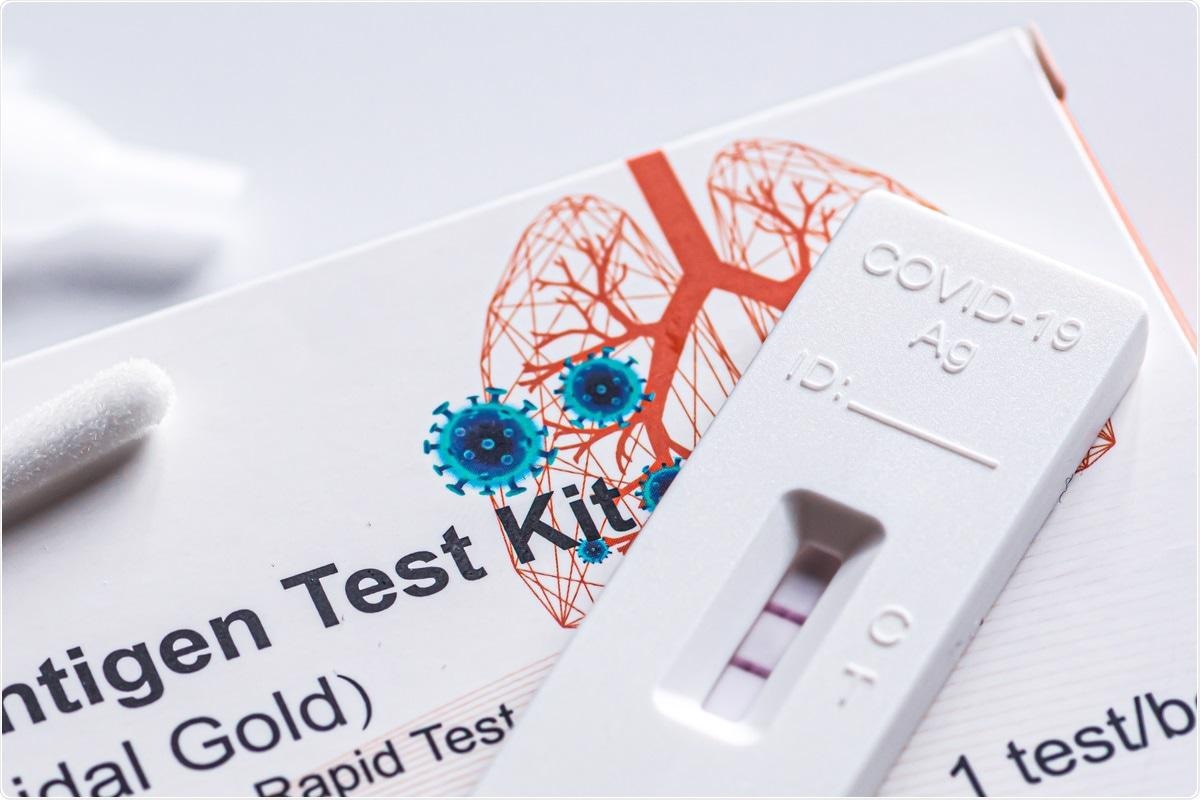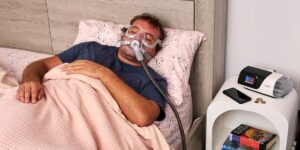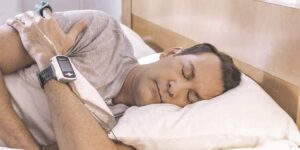Due to the fast spread of the omicron strain of COVID-19, you may be apprehensive about traveling or attending Christmas parties this season, even if you are vaccinated. COVID rapid antigen tests performed at home may help assuage your fears of transmitting the virus—and in certain situations, they’re necessary to preserve your travel plans.
“The most trustworthy test is an in-person PCR conducted by a licensed doctor,” adds Erika Schwartz, M.D., an internist specializing in disease prevention in New York. “However, the advantages of fast testing and self-testing are that they provide instant findings and are less expensive.”
If you’re considering purchasing a home test, here’s what you need to know about how they operate when to use them, and when a polymerase chain reaction (PCR) test or a call to your doctor is more appropriate.

Who Should Take a COVID Test at Home?
A home COVID test is recommended for those who need near-immediate confirmation of their COVID infection status. Numerous fast test kits include rapid antigen tests. After following the test instructions, you will get your results within 15 to 30 minutes.
“If you are symptomatic, this is an efficient approach to identify a good outcome,” explains Kirsten Hokeness, Ph.D., professor, and head of science and technology at Bryant University in Rhode Island. “Alternatively, if you have a known exposure to a COVID-positive person, this is a rapid method of screening.”
She adds rapid antigen tests may help contain the spread of the virus until PCR findings are processed, which might take several days.
“Rapid tests are also beneficial for screening before to big meetings or travel to ensure the safety of the gathering,” Hokeness adds.
For example, regardless of vaccination status, if you go overseas, you must have a negative COVID–19 test result in order to enter the United States. Because the test must be taken within one calendar day of arrival, an antigen test may be your best choice for receiving findings prior to flying.
How Do COVID Tests at Homework?
According to Hokeness, home COVID testing use strips that carry antibodies to a key protein found in COVID-19. When you wipe your nasal with the included swab and apply the sample to the test strip, lateral flow technology (similar to that used in pregnancy tests, according to Hokeness) flows the sample fluid over the antibodies on the test strip—”similar to a paper towel absorbing water.”
“If there are COVID-19 antigens in the sample, they will bind to the antibodies, resulting in a positive result. If they are not there, the binding will not occur, and the consequences will be unfavorable,” Hokeness explains.
Types of COVID Rapid antigen tests Performed at Home
The kind of COVID test you choose may be determined by its intended use. The majority of over-the-counter COVID rapid antigen tests that offer quick results are antigen tests, which may be enough before attending an indoor event but may not be adequate when driving.
“Because these rapid antigen tests are not documented, some scenarios may necessitate PCR testing, such as returning to work, school, or travel,” Hokeness explains.
If you are flying back to the United States, the Centers for Disease Control and Prevention (CDC) mandates that your rapid antigen tests be supervised via video by a medical practitioner. (This service is provided by the producer of the test.)
While the majority of home COVID test kits feature nose swabs, you may come across those that need a saliva sample. Although these rapid antigen tests are somewhat less sensitive than nasal rapid antigen tests that collect mucus through a lengthy swab, both are regarded as valid at-home testing solutions.
How Accurate Are COVID Rapid antigen tests Performed at Home?
COVID rapid antigen tests performed at home are often correct but are generally less sensitive than molecular rapid antigen tests. They are most effective at detecting COVID-19 when you have a high viral load, which often happens when you are symptomatic or have just been infected and your infection has just started, according to Hokeness.
“If the viral load is low, PCR testing is significantly more accurate since it detects very little amounts of material,” she explains.
How to Conduct a COVID Test at Home
It takes just a few minutes to do COVID rapid antigen tests, and everything you need is included in the package (except for a device to connect to the telehealth service, if applicable).
“Be careful to follow all directions included with the test, including how to swab and the recommended period of time to wait before reading the result,” advises Jeannie Kenkare, D.O., chief medical officer of a medical care in Connecticut. The majority of rapid antigen tests yield findings in less than 15 minutes.
Dr. Kenkare notes that most home rapid antigen tests come in pairs, so if you feel you’ve been exposed, you may take a second test a few days later.
How Much Do COVID Rapid antigen tests at Home Cost? Who Is Responsible for Their Costs?
COVID-19 home rapid antigen tests cost between $10 and $30 each test and are accessible at pharmacies, big-box shops such as Walmart, and online.
If you have a health savings account (HSA) or a flexible spending account (FSA) via your health insurance, home COVID rapid antigen tests are considered an approved cost, which means that you may use this money to purchase home test kits.
On Dec. 21, the White House announced plans to deliver free COVID antigen testing to half a billion persons in the United States who want them. In January 2022, the free home testing kits will be accessible via a federal government website that will enable you to order rapid antigen tests for home delivery.
The Most Effective COVID Rapid antigen tests at Home
Numerous fast antigen COVID rapid antigen tests are available for use at home, and the Food and Drug Administration (FDA) maintains a directory where you may search up a test’s approval status by name.
The Forbes Health editorial team chose the following rapid antigen tests based on product quality, pricing, and availability at several stores. Prices and availability are correct at the time of publishing. Additionally, we suggest speaking with your doctor to determine which solutions are the greatest match for you and your unique circumstances.





